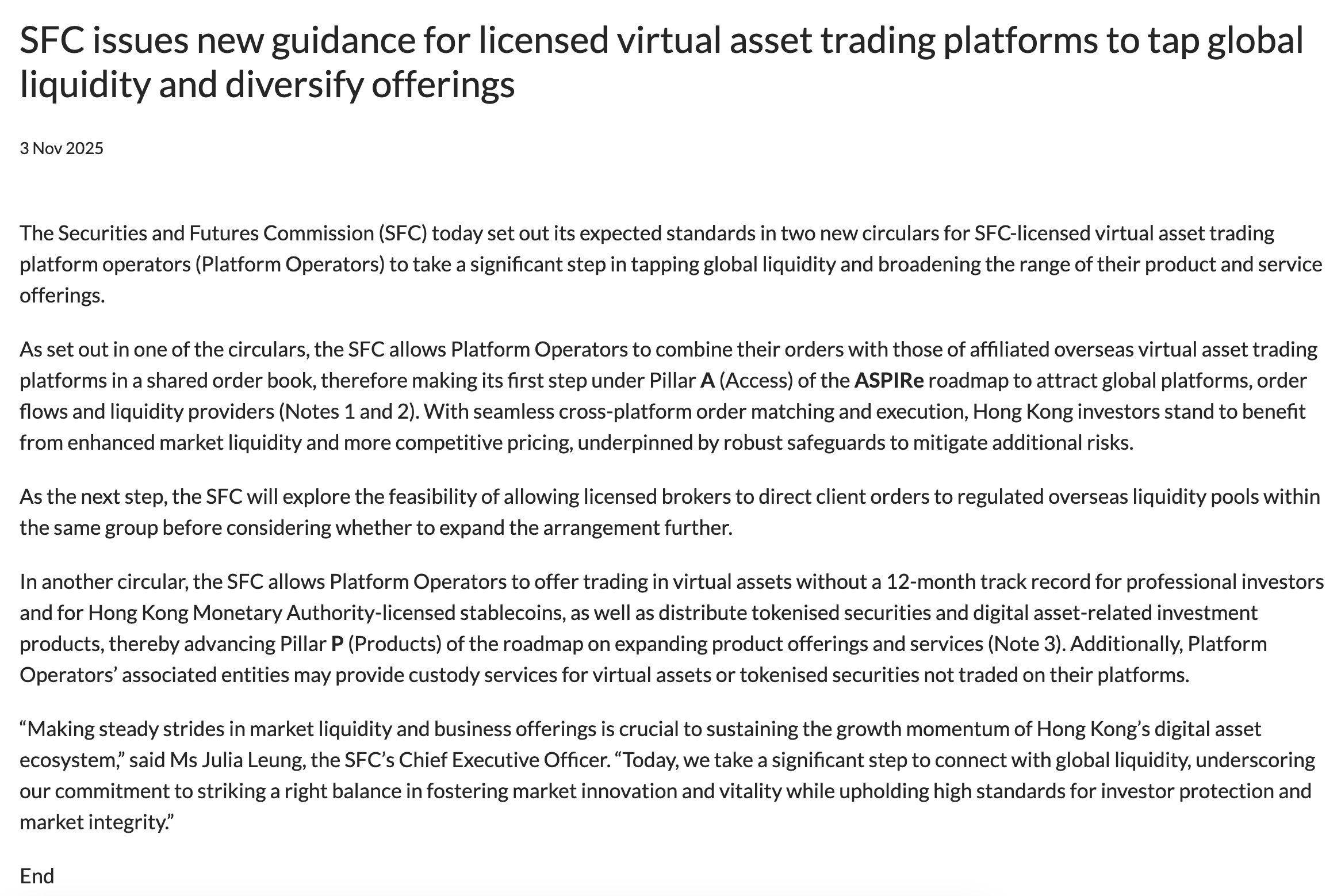Hong Konghas taken an important step towards its goal of becoming a global center in the cryptocurrency market. The city’s financial regulator has moved to strengthen price discovery and market competition by allowing local cryptocurrency exchanges access to global liquidity pools. Hong Kong Securities and Futures Commission The new regulations published by (SFC) opened the door to the integration of the cryptocurrency ecosystem in the region with international standards.
Global Order Book Access Approval from Hong Kong
published by SFC to the circular Licensed in Hong Kong by cryptocurrency Exchanges will now be able to share a common order book with platforms abroad. However, in order for this integration to take place, exchanges will need to obtain prior written approval from the SFC.

Minister Julia LeungIn his speech at Hong Kong Fintech Week, he stated that access to global liquidity will offer investors better pricing and competitive transaction conditions. In the current system, transactions were carried out only within the region on a pre-funding basis. The new regulation aims to make the market more flexible and international.
Token and Stablecoin Restrictions Easing
In the second circular published by SFC, Hong Kong Monetary Authority An important convenience has been introduced for token and stablecoin projects licensed by . There will no longer be a mandatory 12-month transaction history requirement for all these assets to be offered to professional investors. The regulatory body stated that this change will enable innovative projects to enter the market faster. Thus, Hong Kong stablecoin And tokenization aims to increase its competitiveness on a global scale in its field.
The Hong Kong government is constantly reviewing its regulatory framework supporting the cryptocurrency ecosystem. Increasing global competition, especially after Donald Trump took office in the USA, led the region to follow more flexible policies. SFC Chairman Leung said in his speech: “Overly strict rules can divert liquidity and talent to regions with looser regulations, while inadequate supervision undermines confidence and stability.” This approach is at the heart of Hong Kong’s strategy to maintain balance and create a reliable, sustainable and internationally competitive ecosystem.









